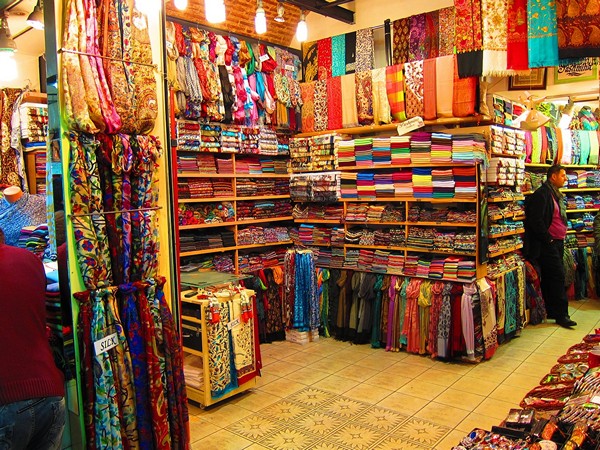
Lahore : Pakistan's textile industry, which was once poised to achieve higher export earnings, started to lose its momentum, as per The Express Tribune.
2024 has been a challenging year for this crucial sector, often referred to as the backbone of the nation's industrial economy.
In the fiscal year 2023-24, textile exports saw a modest growth of 0.93 per cent, generating a substantial USD 16.7 billion in export revenues. However, during the first five months of FY25, textile exports reached USD 7.607 billion, reflecting a 10.51 per cent increase compared to the same period last year Express Tribune reported.
In the first 11 months of 2024, textile exports totaled just USD 15.43 billion. Industry millers anticipate that the December figure could be approximately USD 1.5 billion, resulting in the year ending with exports falling short of USD 17 billion.
Ijaz Khokhar, Patron-in-Chief of the Pakistan-textile-exports, stated, "The early months of this calendar year were relatively good for the textile industry, particularly exports, as they showed a positive trend."
The positive trend started to decline after the initial months. The primary cause was ongoing political instability, which has persisted for more than two years. Khokhar remarked, "We have lost at least 40 per cent of our export orders because buyers, hesitant to trust Pakistani textile millers due to political challenges, are shifting their orders to Vietnam."
Others noted that Pakistan also missed the chance to secure orders that were diverted from Bangladesh due to its political turmoil. Waqas Hanif, a mid-sized textile miller from Lahore, said, "Textile millers in Pakistan should have fully taken advantage of the opportunity created by the political change in Bangladesh. However, our millers have been unable to meet the demand because of price differences."
According to the Express Tribune report a significant portion of the demand was once again redirected to Vietnam, as Pakistani millers lacked product diversification. Hanif highlighted, "Vietnam is far more advanced in the textile and other sectors. They offer a wide range of products and are able to offer lower prices."
Pakistan was once the top choice for international buyers due to its competitive prices. However, the country has consistently struggled with product diversification. Over the past decade, the government, textile millers, analysts, and foreign buyers have all emphasized the need for diversification.
While a few millers are making efforts, the industry as a whole remains far from developing the new products required by European Union and American buyers. The government's support in this area has also been lackluster. Some economists caution that ongoing political tensions, along with stringent measures from the finance ministry and the Federal Board of Revenue (FBR), could severely harm the sector, which remains the largest source of export revenue.
"The local industry has not been growing for years, so how can we expect product diversification or an increase in export revenue?" asked Ahmad Aziz Subhani, an economist based in the UAE.
Recently, the FBR included the textile sector in the standard tax regime, requiring millers to pay a 2 per cent advance tax instead of the previous 1 per cent. Furthermore, they are now obligated to submit all their business information to the FBR.
Subhani stated that following the tax increase, many Pakistani textile companies have been relocating to Dubai. "So far, about 400 companies have set up offices in Dubai and registered with the Dubai Chamber of Commerce. This will likely lead to under-invoicing of export orders by several Pakistani millers, further reducing export revenue," he added.
The report further stated that many textile industry leaders highlight that the sector is heading in the wrong direction.
"We are struggling with high energy costs, which have led to a reduction in mills and a shift of orders to Vietnam. We are uncertain about how many billions of dollars we've lost because of this," said Ashraf Ali, a textile retailer based in Faisalabad. He further mentioned that a cotton crisis is looming, as nearly half of the spinning units have shut down due to a liquidity shortage and delays in the FBR's release of sales tax refunds.
"We should expect a rise in yarn prices and a shortage of the product in 2025," Ali added. The industry is also awaiting the start of Trump's second term, as many factors depend on the policies the incoming US president will implement.
Many millers argue that any restrictions, whether due to political instability or other factors, would have a detrimental impact on Pakistan's textile industry. They also pointed out that the ongoing Russia-Ukraine war and the conflict in the Middle East could further escalate tensions and affect the global economy.
In summary, textile exports for the current fiscal year are likely to decline or remain flat due to the various challenges the industry is facing. The sector has almost given up on reaching its USD 25 billion export target, as they believe that without a clear textile policy and the active involvement of key stakeholders in decision-making, achieving this goal would remain an unrealistic aspiration.